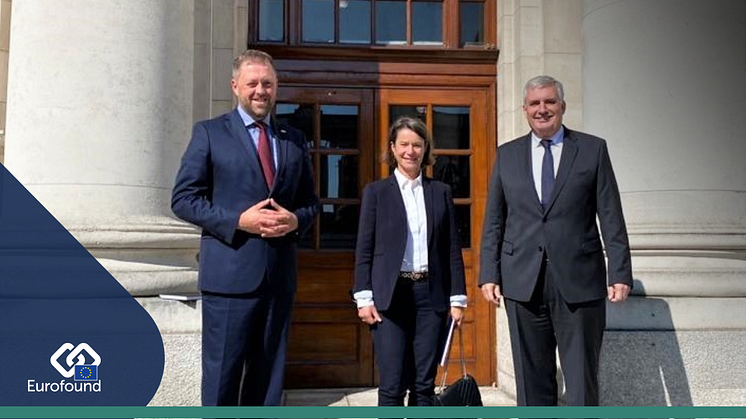
News -
Citizen participation important driver of optimism in Europe
Citizens who feel their voice counts are not only more optimistic about their own future, but also about broader society and the institutions that govern their lives. These research findings, detailed in Eurofound’s new report on social factors shaping optimism and pessimism among citizens come as people in Europe prepare to participate in the first European Citizens’ Panel in Strasbourg as part of the Conference on the Future of Europe.
Evidence shows that high levels of pessimism can undermine social cohesion. As Europe emerges from the pandemic, it will be crucial for policymakers to understand the drivers of optimism and pessimism to address the challenges arising from potentially growing disillusionment.
Age appears to have the greatest net effect on social optimism: the happiest outlook was reported by young people, with a dip in positivity in middle age, and rising levels of optimism among older people. Material and economic disparities play an important role in optimism and pessimism, however additional factors such as community involvement and perception of the quality of public services also play a pivotal role and initiatives that involve citizens in the debate about the recovery process, such as the Conference on the Future of Europe, will be critical going forward.
Speaking on the publishing of the research Klára Fóti, Eurofound Research Manager, emphasised the need to ensure that citizens feel they have a stake in society in post-pandemic Europe, ‘After the COVID-19 crisis, involving citizens in key decision-making processes will be vital. Our research found that people who feel their voice counts tend to be more optimistic not only about their future but also about that of the society they live in.’
The research also identifies the key drivers of people’s perceptions about the future and explores whether optimists and pessimists differ in their socioeconomic, cultural and political characteristics. It shows how the COVID-19 pandemic arrived in Europe at a time of notable public pessimism, with almost half of all Europeans (49%) reporting that things in their country were headed in the wrong direction and the majority (54%) saying they felt certain that the lives of their children would be more difficult in the future compared to their own lives today.
Labour market precarity and financial instability emerge as important factors in the growing pessimism, with findings showing that pessimists are more sensitive to material and economic disparities, demanding more political measures to reduce differences in income levels. However, when it comes to social optimism, results do not show the typical East–West or North–South divide often found in country comparisons. While the Nordic countries remain the most optimistic, central and eastern European and Balkan countries report a brighter outlook than the Mediterranean countries. Some highly developed European countries, such as France, Belgium and Italy recorded high relative levels of social pessimism.
Download the report:
Further information:







